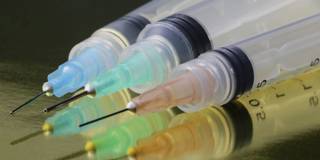The threat of punishment and discrimination doesn’t drive people to quit or avoid drugs, but rather to hide their use, including from their doctors. There is a better way, and jurisdictions like the US state of Oregon may have found it.
JOHANNESBURG – While the world has been fixated on the results of the presidential election in the United States, less attention has been paid to another outcome of last Tuesday’s vote: significant steps toward decriminalization of drugs in several US states. One state – Oregon – is now set to abolish criminal penalties for possession of small quantities of all illegal drugs, from heroin to methamphetamine. This approach should be applauded – and adopted far more broadly.

JOHANNESBURG – While the world has been fixated on the results of the presidential election in the United States, less attention has been paid to another outcome of last Tuesday’s vote: significant steps toward decriminalization of drugs in several US states. One state – Oregon – is now set to abolish criminal penalties for possession of small quantities of all illegal drugs, from heroin to methamphetamine. This approach should be applauded – and adopted far more broadly.